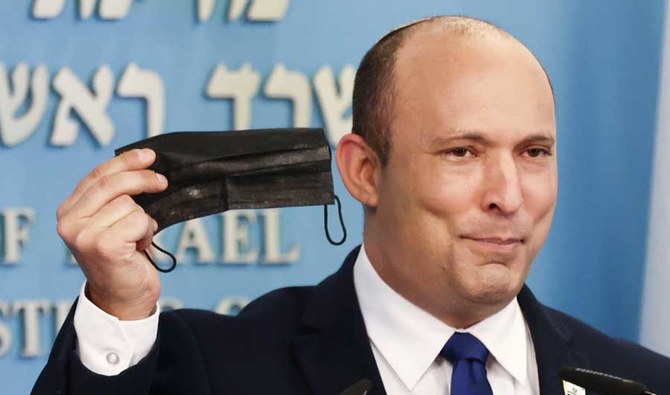TEL AVIV: When a ceasefire between Israel and Hamas began two months ago, Herut Nimrodi knew it would take time before her son was released from captivity in Gaza. The 20-year-old soldier was meant to be part of the second phase of the deal winding down the war.
But with Israel’s surprise bombardment of Gaza, she fears he might not come home at all.
“I really wanted to believe that there is still a chance to reach a second stage without renewing this war. But it feels like my building of hope has collapsed, and I have no idea what to do next,” Nimrodi said.
Nearly 60 families have relatives still held in Gaza. About two dozen hostages are believed to be alive.
During the ceasefire’s first phase, which began in January, Hamas released 25 Israeli hostages and the bodies of eight others in exchange for nearly 2,000 Palestinian prisoners. But since that phase ended early this month, the sides have not been able to agree on a way forward.
Israel’s renewed airstrikes threaten to end the fragile deal.
Nimrodi’s son, Tamir, was abducted from his army base when Hamas stormed into Israel on Oct. 7, 2023, killing some 1,200 people and taking more than 250 hostage. She’s had no sign of life. He hasn’t been declared dead by Israel.
“It’s so sad that this is the only solution that they could find,” she said, lamenting the government’s decision.
The strikes have Tuesday killed hundreds and shattered a relative calm — along with hopes of ending the war that has killed over 48,000 Palestinians.
The return to fighting could deepen the painful debate in Israel over the fate of the remaining hostages.
Netanyahu and his hard-line governing partners believe renewing the war will put pressure on Hamas to free them and move Israel closer to its goal of destroying Hamas’ military and governing capabilities.
But most hostage families, and large parts of the Israeli public, believe such goals are unrealistic. They say time is running out, particularly after the recent releases of emaciated-looking hostages who later described harsh conditions in captivity.
Hamas accused Netanyahu of upending the ceasefire and exposing the hostages “to an unknown fate.”
Families of hostages called on supporters to protest with them outside Israel’s parliament.
Some families who already know their relatives in Gaza are dead called the government’s decision unacceptable.
“This is not only a disaster in every way, shape or form on how the hostages keep suffering, being chained to walls, starved, abused, but also the death toll that keeps rising on the Gazan side,” Udi Goren said.
His cousin Tal Haimi was killed on Oct. 7 and his body was taken into Gaza. Goren said the international community must pressure Hamas, Israel and the mediators — the US, Egypt and Qatar — to end the war.
“Returning to fighting? Did you listen to a word of what we, the returnees released in the last deal, have been saying to you?” former hostage Omer Wenkert wrote on Instagram.
Romi Gonen, among the first hostages to be freed in the ceasefire’s first phase, said she would never forget what it felt like in captivity to hear the bombs after previous ceasefire talks collapsed and realize she wouldn’t be freed any time soon.
“I beg you, the people of Israel, we must continue to fight for them,” she said on Instagram.
Sylvia Cunio, whose two sons are held hostage, accused Israel’s leaders of not having a heart.
“It isn’t right to continue the fighting. I want my children back home already. If he wants to kill me, the prime minister, let him do that already because I won’t get through this,” she said on local radio.
Nimrodi said she’s worried the airstrikes might not only harm her son and the other hostages but also make their living conditions worse.
The last time she saw Tamir, he was a funny teenager who rode horses and loved learning about geology and astronomy, she said. The two had a similar humor and used to talk about everything.
While she’s terrified of what’s to come, she said she won’t stop fighting to see him again.
“Please, keep strong, survive,” she said, addressing him. “So there’s a chance for us to meet once more.”


























